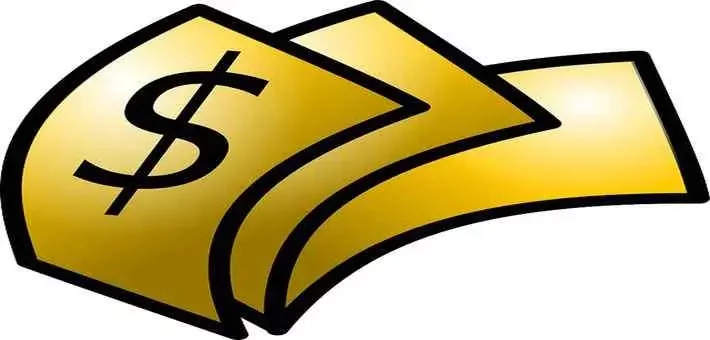Negotiable Instrument Act, 1881 MCQs
A negotiable instrument means a Promissory note, Bill of exchange, Cheque payable either to order or to bearer. Here on MCQs.club we have written useful Multiple-choice Questions (MCQs) on negotiable instrument act that fully cover MCQs on negotiable instrument act 1881, ni act 1881 law notes, negotiable instrument act bare act, negotiable act 1881 MCQs, types of negotiable instrument act 1881. These negotiable instrument act 1881 mcq are useful for Business Management exams, Competitive exams, Professional Accountancy exams.
- A negotiable instrument means a _______________ payable either to order or to bearer.
- Promissory note
- Bill of exchange
- Cheque
- All of the above
- Negotiable means transferable by delivery and instrument means a written document by which a right is created in favour of some person. Thus, negotiable instrument may mean a written document transferable by delivery.
- The above statement is correct
- The above statement is incorrect
- The essential characteristics of a negotiable instrument include:
- Payable to order or bearer
- Easy transferability
- Transferee can sue in his own name
- Title of holder in due course
- All of the above
- The presumptions in respect of negotiable instruments include:
- Every negotiable instrument was made, drawn, accepted, endorsed or transferred for consideration.
- Every negotiable instrument bearing a date was made or drawn on such date.
- Every bill of exchange was accepted within a reasonable time after its date and before its maturity.
- Every transfer of a negotiable instrument was made before its maturity.
- The endorsements appearing upon a negotiable instrument were made in the order in which they appear.
- A lost negotiable instrument was duly stamped.
- All of the above
- (I) (III) and (V) only
- (II) (III) and (IV) only
- None
- A holder of negotiable instrument is a holder in due course where it is proved that the holder has obtained the instrument from its lawful owner, or from any person in lawful custody thereof, by means of an offence, fraud or for unlawful consideration and in such a case the holder has to prove that he is a holder in due course.
- The above statement is correct
- The above statement is incorrect
- When a bill of exchange has been noted or protested for non-acceptance or for better security and any person accepts it supra protest or honour of the drawer or of any one of the endorsers, such person is called:
- An acceptor for honour
- Payment for honour
- Both A&B
- None
- The conditions for a valid acceptance for honour include:
- The bill must have been noted or protested for non-acceptance or for better security.
- The acceptance for honour must be made with the consent of the holder.
- It must be written on the bill and it must indicate that it is an acceptance for honour of a party who is already liable on the bill.
- It must be signed by the acceptor for honour who must not already be liable on the bill
- All of the above
- Where the acceptance does not specify to whose honour it is made it shall be deemed to be made for the honour of:
- The drawer
- The drawee
- Acceptor
- None
- The essential conditions for the payment for honour include:
- Bill must have been dishonoured for non- payment
- Bill must have been noted or protested for non-payment.
- Person paying or his agent must declare before the notary public, the party for whose honour he accepts
- All of the above
- Any person making payment for honour is entitled to all the rights, in respect of the bill, of the holder at the time of such payment. He may recover from the party for whose honour he pays all sums so paid with interest thereon and all expenses properly incurred in making such payment.
- The above statement is correct
- The above statement is incorrect
- A person is called holder of a negotiable instrument if:
- He must be entitled to the possession of the instrument in his own name
- He must be entitled to receive / recover the amount due on the instrument from the parties liable under the instrument
- Both A&B
- None
- When the note, bill or cheque is lost and not found or is destroyed, the person in possession of it or the bearer at the time of loss or destruction shall deemed to continue to be its holder.
- True
- False
- A person becomes holder in due course when he fulfils:
- The essentials of a holder
- Holder for valuable consideration
- A person should receive the instrument before its maturity
- All of the above
- Types of instrument include:
- Order
- Bearer
- Demand
- Time
- All of the above
- A promissory note, bill of exchange or cheque is payable to order if:
- Which is expressed to be so payable
- Which is expressed to be payable to a particular person
- Does not contain words which prohibit transfer
- All of the above
- A promissory note of bill of exchange or cheque is payable to bearer if:
- Expressed to be so payable
- last endorsement must be an endorsement in blank
- Both A&B
- None
- Instruments payable on demand means the instrument in which no time for payment is mentioned. A cheque is always payable on demand. A promissory note or bill of exchange is payable on demand where:
- It is expressed to be so
- It is expressed to be payable “at sight” or “presentment”; or “on demand”
- No time for payment is specified
- The bill or note accepted or endorsed after it is overdue, as regards to person accepting or indorsing it.
- All of the above
- If a negotiable instrument is made payable a stated number of months after date or after sight, or after a certain event, it matures _________days after the corresponding date of the month after the stated number of months.
- Three
- Four
- Seven
- None
- If an instrument is payable by instalments, three days of grace are to be allowed on each instalment.
- True
- False
- Inland instrument – A promissory note, bill of exchange or cheque which is
- Made or drawn in Pakistan and also made payable in Pakistan
- Made or drawn in Pakistan upon any person resident in Pakistan, although it may be payable in a foreign country
- Both A&B
- None
- An incomplete or blank negotiable instrument is one which is _____________ but where the name or amount is missing.
- properly stamped
- signed
- Both A&B
- None
- Which of the following is correct in connection with inchoate instrument?
- The liability of a person who signs and delivers an inchoate instrument arises only when the blanks are filled in and the instrument is completed.
- To make the signer liable on an inchoate instrument, it is necessary that the instrument should be delivered to the transferee.
- The instrument must be stamped and the stamp affixed must be sufficient to cover the amount filled in the instrument.
- All of the above
- An instrument which may be interpreted as either promissory note or bill of exchange is called an ambiguous instrument. Its holder must elect once for all whether he wants to treat it as a promissory note or bill of exchange.
- The above statement is correct
- The above statement is incorrect
- Example of an Ambiguous instrument is:
- A bill of exchange where the drawer and the drawee are the same person
- Where the drawee is a fictitious person
- Bills drawn by an agent on his principal
- All of the above
- Essentials of valid endorsement include:
- It must be on instrument itself, if no space is left on the back of the endorsement
- It must be signed by the endorser for the purpose of negotiation
- No particular form of words is necessary for an endorsement
- All of the above
- Kinds of endorsements are:
- Blank or general endorsement
- Endorsement in full or special endorsement
- Both A&B
- None
- Blank or general endorsement –
- If the endorser signs his name only and does not specify the name of the endorsee, the endorsement is said to be blank.
- If the endorser, in addition to his signature, also adds a direction to pay the amount mentioned in the instrument to or to the order of a specified person the endorsement is said to be full.
- Both A&B
- None
- Endorsement in full or special endorsement –
- If the endorser signs his name only and does not specify the name of the endorsee, the endorsement is said to be blank.
- If the endorser, in addition to his signature, also adds a direction to pay the amount mentioned in the instrument to or to the order of a specified person the endorsement is said to be full.
- Both A&B
- None
- Negotiation – “When a promissory note, bill of exchange or cheque is transferred free from defects to any person, so as to constitute that person the holder of it, the instrument is said to be negotiated.
- The above definition is correct
- The above definition is incorrect
- Modes of negotiation include:
- Negotiation by mere delivery
- Negotiation by endorsement and delivery
- Both A&B
- None
- Material alteration – An alteration is material which:
- Alters the character or identity of the instrument or which shakes the very foundation of the instrument
- Changes the rights and liabilities of the parties
- Alters the operation of the instrument.
- All of the above
- Examples of material alteration include:
- Date, Sum payable, Time of payment,
- Place of payment, Addition of place of payment
- Rate of interest
- All of the above
- In which of the following cases the alteration of a negotiable instrument is not material:
- A material alteration made before the instrument is issued.
- An alteration made for the purpose of correcting a mistake.
- An alteration made to carry out the common intention of the original parties.
- An alteration made with the consent of the parties.
- All of the above
- Which of the following alterations are permitted by the Negotiable Instrument Act 1881, and do not invalidate the instruments?
- Filling blanks of inchoate instruments.
- Conversion of a blank endorsement into an endorsement in full.
- Crossing the cheques
- All of the above
- Payment in due course means –
- The payment must be in accordance with the apparent tenure of the instrument.
- The payment must be made in good faith and without negligence.
- The payment must be made to a person in possession of the instrument
- The payment must be made in money only
- All of the above
- The essential characteristics of a promissory note include:
- A promissory note has to be in writing.
- There must be a promise or a clear undertaking to pay.
- The promise must not depend upon the happening of some uncertain event. i.e. a contingency or the fulfilment of a condition.
- A promise to pay a certain amount of foreign or to deliver a certain quantity of goods is not a promissory note.
- All of the above
- Parties to a bill of exchange are:
- Drawer, Drawee
- Payee
- Both A&B
- None
- Essential elements of a bill of exchange include:
- A bill of exchange is required to be in writing.
- A bill of exchange contains an order to pay instead of a promise to pay
- If the instrument contains an order to pay something other than money or something in addition to money, it will not be valid bill of exchange.
- All of the above
- Cheque – Cheque is a bill of exchange drawn on a specified banker and not expressed to be payable otherwise than on demand.
- The above definition is correct
- The above definition is incorrect
- Essential elements of a cheque include:
- The order must be to pay money only
- It must always be drawn upon a specified banker
- It must always be payable on demand
- All of the above
- Method of crossing – A cheque is said to be crossed when it bears across its face two parallel transverse lines which are usually drawn on the left-hand top corner of the cheque.
- True
- False
- Types of crossing include:
- General crossing, Special crossing
- Restrictive crossing
- Not negotiable crossing
- All of the above
- Circumstances in which a banker must refuse to honour a cheque include:
- Where the customer has stopped the payment of the cheque.
- When a garnishee order or any other legal order of the court prohibits payment of cheque.
- When the banker receives notice of customers death.
- When the banker has reason to believe the holder title is defective.
- When the banker receives a notice of loss of cheque from his customer.
- When the banker receives notice in respect of closure of account.
- All of the above
- (I) (III) and (V) only
- (II) (V) and (VI) only
- None
- Discharge of the negotiable instrument include:
- Payment in due course
- Negotiation back
- Discharge as a simple contract
- All of the above
- Discharge of party or parties include:
- When the holder of a negotiable instrument or his agent cancels the name of a party on the instrument
- Where the holder of a negotiable instrument releases any party to the instrument by any method other than cancellation
- Where a cheque is not presented by the holder for payment within a reasonable time of its issue
- All of the above
- Discharge of party or parties by Operation of law include:
- By an order of insolvency court, discharging the insolvent.
- By merger. When a judgement is obtained against the acceptor, maker or endorser, the debt under the bill is merged into the judgement debt.
- By lapse of time i.e. when the remedy becomes time barred.
- All of the above
—More to come soon—
Read more
Read more
Read more
Read more
Read more
Read more




